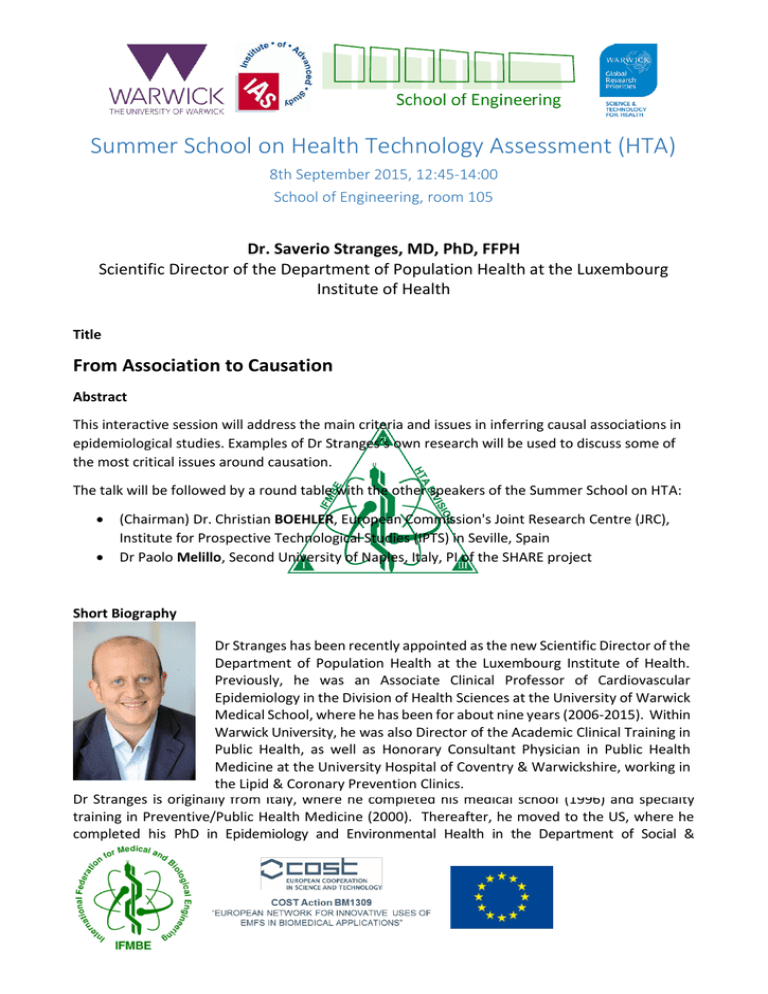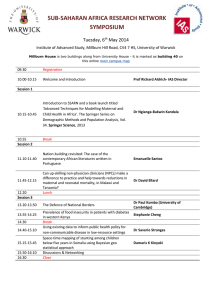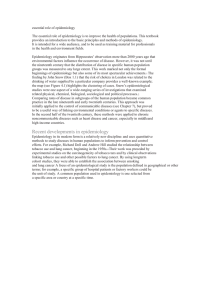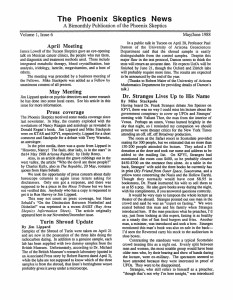Summer School on Health Technology Assessment (HTA) From Association to Causation
advertisement

Summer School on Health Technology Assessment (HTA) 8th September 2015, 12:45-14:00 School of Engineering, room 105 Dr. Saverio Stranges, MD, PhD, FFPH Scientific Director of the Department of Population Health at the Luxembourg Institute of Health Title From Association to Causation Abstract This interactive session will address the main criteria and issues in inferring causal associations in epidemiological studies. Examples of Dr Stranges’s own research will be used to discuss some of the most critical issues around causation. The talk will be followed by a round table with the other speakers of the Summer School on HTA: (Chairman) Dr. Christian BOEHLER, European Commission's Joint Research Centre (JRC), Institute for Prospective Technological Studies (IPTS) in Seville, Spain Dr Paolo Melillo, Second University of Naples, Italy, PI of the SHARE project Short Biography Dr Stranges has been recently appointed as the new Scientific Director of the Department of Population Health at the Luxembourg Institute of Health. Previously, he was an Associate Clinical Professor of Cardiovascular Epidemiology in the Division of Health Sciences at the University of Warwick Medical School, where he has been for about nine years (2006-2015). Within Warwick University, he was also Director of the Academic Clinical Training in Public Health, as well as Honorary Consultant Physician in Public Health Medicine at the University Hospital of Coventry & Warwickshire, working in the Lipid & Coronary Prevention Clinics. Dr Stranges is originally from Italy, where he completed his medical school (1996) and specialty training in Preventive/Public Health Medicine (2000). Thereafter, he moved to the US, where he completed his PhD in Epidemiology and Environmental Health in the Department of Social & Preventive Medicine at the State University of New York at Buffalo in 2004, where he also began his academic career as an Assistant Professor in 2005, before moving to the UK. Throughout his career, Dr Stranges has been involved in several international epidemiological projects, clinical trials, secondary data analyses and systematic review work, and has published extensively in the area of chronic disease epidemiology, with over 100 publications as scientific articles, reviews and book chapters. His published work derives from several population-based studies and clinical trials around the world including: the Nutritional Prevention of Cancer Trial (NPC), Western New York Health Study, National Health and Nutrition Examination Survey (NHANES) in the US; UK-PRECISE trial, Whitehall II Study, National Diet and Nutrition Survey (NDNS), Health Survey for England (HSE) in the UK; EPIC Study and Olivetti Heart Study in Italy; WHO-INDEPTH Network in Africa and Asia. Over the years, Dr Stranges has developed substantial expertise in the evaluation of observational and clinical trial data and secondary data analysis of large datasets. His research has received national and international media attention. Dr Stranges is an Adjunct Faculty within the Department of Epidemiology and Environmental Health, State University of New York at Buffalo in the US, within the Division of Health Sciences at the University of Warwick Medical School, and within the Department of Epidemiology & Public Health at UCL. He is member of numerous editorial boards for scientific international journals, and has received a number of international prizes for his work on nutritional aspects of cardio-metabolic disease prevention. His main areas of expertise refer to the role of micronutrients and dietary patterns in cardio-metabolic disease prevention, as well as to the effect of sleep disturbances on health outcomes. He has also been involved in a number of projects on non-communicable disease in low-income countries. Dr Stranges has completed university teaching certification programs in both the US and the UK, and has been involved in the teaching and mentoring of students and junior doctors for over twenty years. Throughout his career, he has been responsible for the supervision of several master’s and doctoral level students, as well as clinical fellows.






